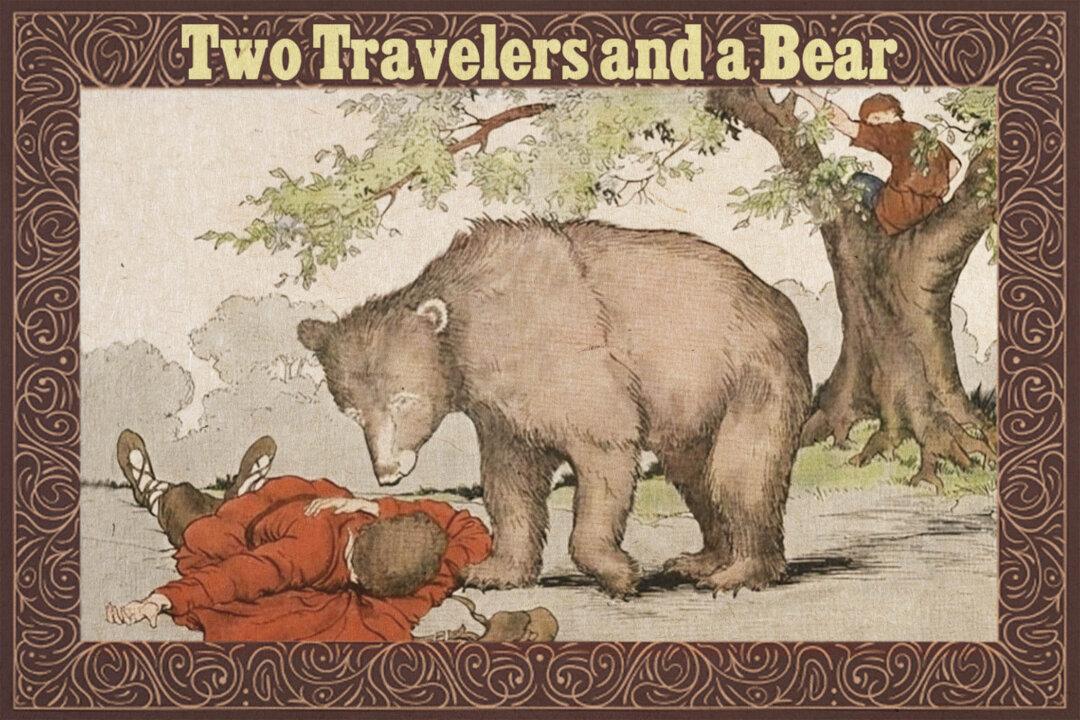Two Men were traveling in company through a forest, when, all at once, a huge Bear crashed out of the brush near them.
One of the Men, thinking of his own safety, climbed a tree.

Two Men were traveling in company through a forest, when, all at once, a huge Bear crashed out of the brush near them.
One of the Men, thinking of his own safety, climbed a tree.